Pima County officials hope to repurpose vacant Mission Annex
Justice Services Director Kate Vesely has big plans for the 11,152-square-foot building, which includes office space, dozens of shower and restroom facilities, communal and outdoor areas, and private rooms.
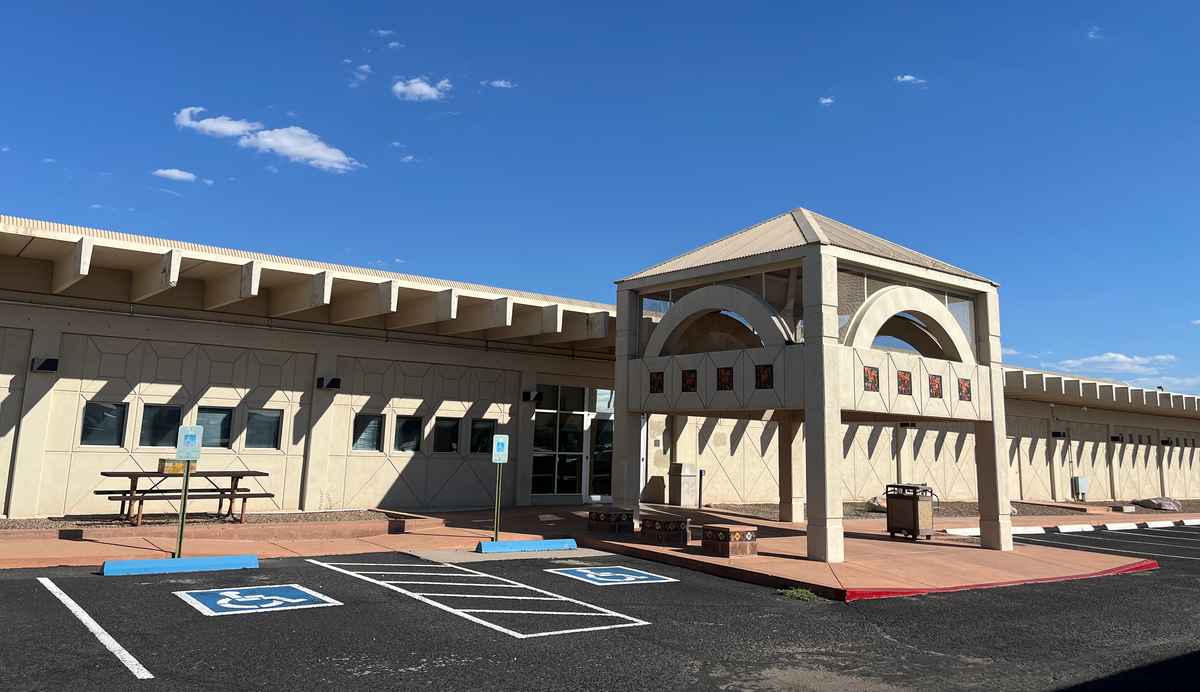
Pima County, like the rest of the nation, has been battling a critical housing shortage. But as the need increases, some officials are eyeing creative solutions that provide more than just shelter.
This summer, Pima County Justice Services quietly took up residence in the vacant Mission Annex building, which used to serve as a minimum security facility for the jail but has been vacant since 2020.
The official reason for the move was so staffers could operate a west side Cooling Center, providing water, snacks and respite in an air-conditioned building to an underserved area, Monday through Friday.
But Justice Services Director Kate Vesely has bigger plans for the 11,152-square-foot building, which includes office space, dozens of shower and restroom facilities, communal and outdoor areas, and private rooms.
Justice Services connects people with programs and resources in an effort to help break the cycle of incarceration. It works with system-involved people and various community members and partners.
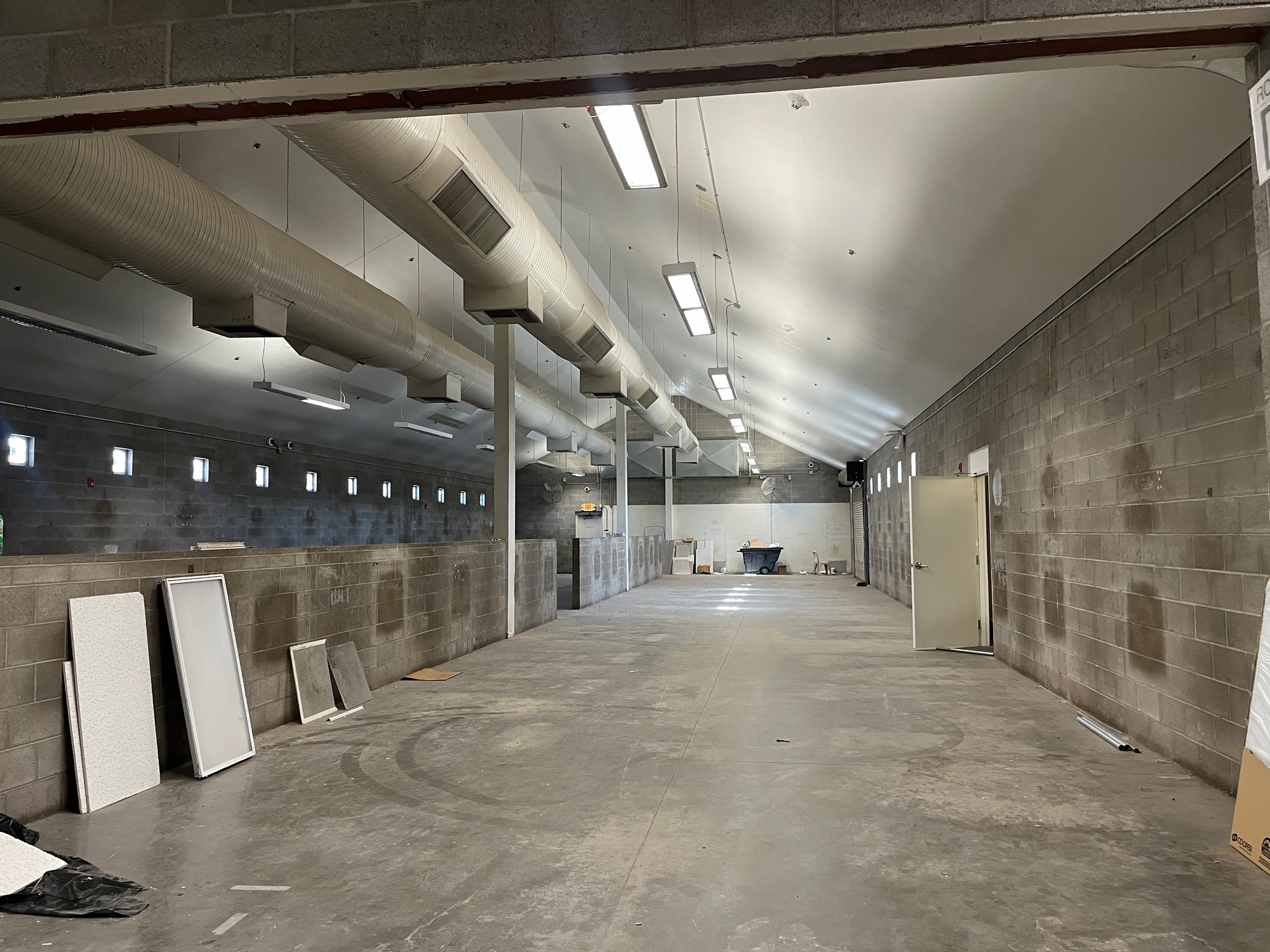
Initially, Vesely hoped the space’s proximity to the county’s Transitional Center would help connect people to resources, telling KJZZ’s Alisa Reznick in August that she thought people being released from jail might stop by to rest before moving onto their next destination.
The Transitional Center sits next to the jail and helps people charged with non-violent misdemeanors navigate the criminal justice system and prevent recidivism. It’s right around the corner from the annex, located at 1801 South Mission Road, and has a bus stop out front.
Vesely knew that setting up shop in the annex could benefit other populations, including people who are seeking cooling services but need other kinds of support. With the Transitional Center so close, Vesely and her staff could send people down the street and connect them with that additional help.
Within the first few weeks, the number of people visiting the site for justice-related services quickly eclipsed those looking for a cool place to take shelter. As of last week, it more than 100 people had received help at the annex for justice-related questions and concerns.
But unlike Vesely’s initial thoughts, most of them weren’t coming from the Transitional Center. Instead, they were coming to watch family members’ initial appearances following their arrest, since it turns out that several city and county websites incorrectly list the Mission Annex as the site.
Now, she’s thinking bigger and envisions a hub to support vulnerable individuals and provide various services including housing, employment and even healthcare. With employees from other county departments and various community providers already using the space to meet with clients and provide walk-in services, it seems like her vision isn't all that far away from becoming a reality.
“This has been something that we've been talking about for years and years, because there is no one-stop shop and the justice system is complicated,” Vesely said during a recent visit to the facility. “And people, whether it be physically or virtually, deserve to have one place to go where somebody is not only going to be able to explain what's going on, but actually care about the individual that they’re invested in, bring some of that humanity back to the legal system and offer some support in a way that the public defender might not be able to.”
Over the past few months, Vesely and her staff have been collecting unwanted and repurposed furniture with the help of the county’s facilities management department, bringing in desks, chairs, filing cabinets and more and transforming the empty lobby and processing area into office and meeting space.
Justice Services employees have been staffing the cooling center from Monday through Friday, with employees from the Pima County Health Department taking over on the weekends. Pima County One-Stop has been holding regular office hours at the annex and the City of Tucson has been chipping in with supplies, resources and even staff.
Starting this week, a staffer from the city's housing department will be on site to help with placement and transportation, with Vesely saying that everyone who needs a bed should have a bed.
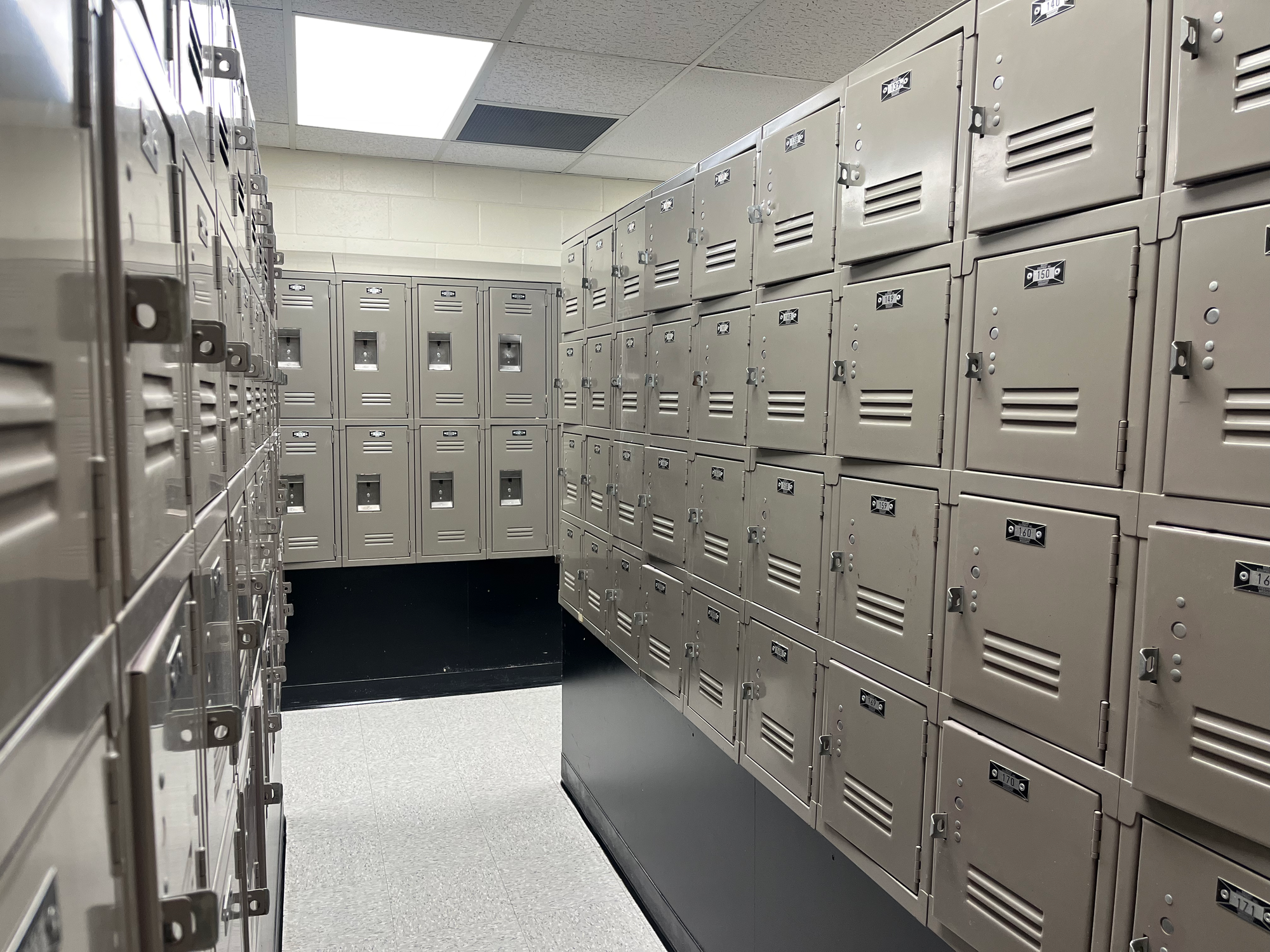
“One of the things we don't want is people walking in and then not having a place to go that night, and they having to wander out into the community,” she said. “We're trying really hard to make just a very casual build, so by the time we're actually rocking and rolling, it'll be too big to shut down. I'm just going to keep showing up here until they tell me to stop.”
Vesely has big plans for the massive building, which include capitalizing on existing structures and spaces like the locker room, which she envisions converting into mailboxes for people who lack a permanent address.
The space is also already set up for communal living and could be used as a shelter or transitional housing with on-site services for residents, including medical services, since there are several private, plumbed rooms, Vesely said.
Given the proximity to the jail and Transitional Center and its access to a direct bus line, Vesely said it makes sense for Justice Services to be located in the annex.
But with Justice Services being housed in the annex and holding regular office hours, those in need have direct access to people who can help them navigate the system and get the right kind of support.
“If people want to come in and just cool off and drink some water, that's fine. But if they want to cool off, drink some water and quash some warrants and talk to Pima County One-Stop about employment, or talk to hope about getting into treatment services, that’s even better,” she said. “If we can have more of an on-site consolidation of those community resources, the easier it is going to be for people who are already very vulnerable to navigate.”
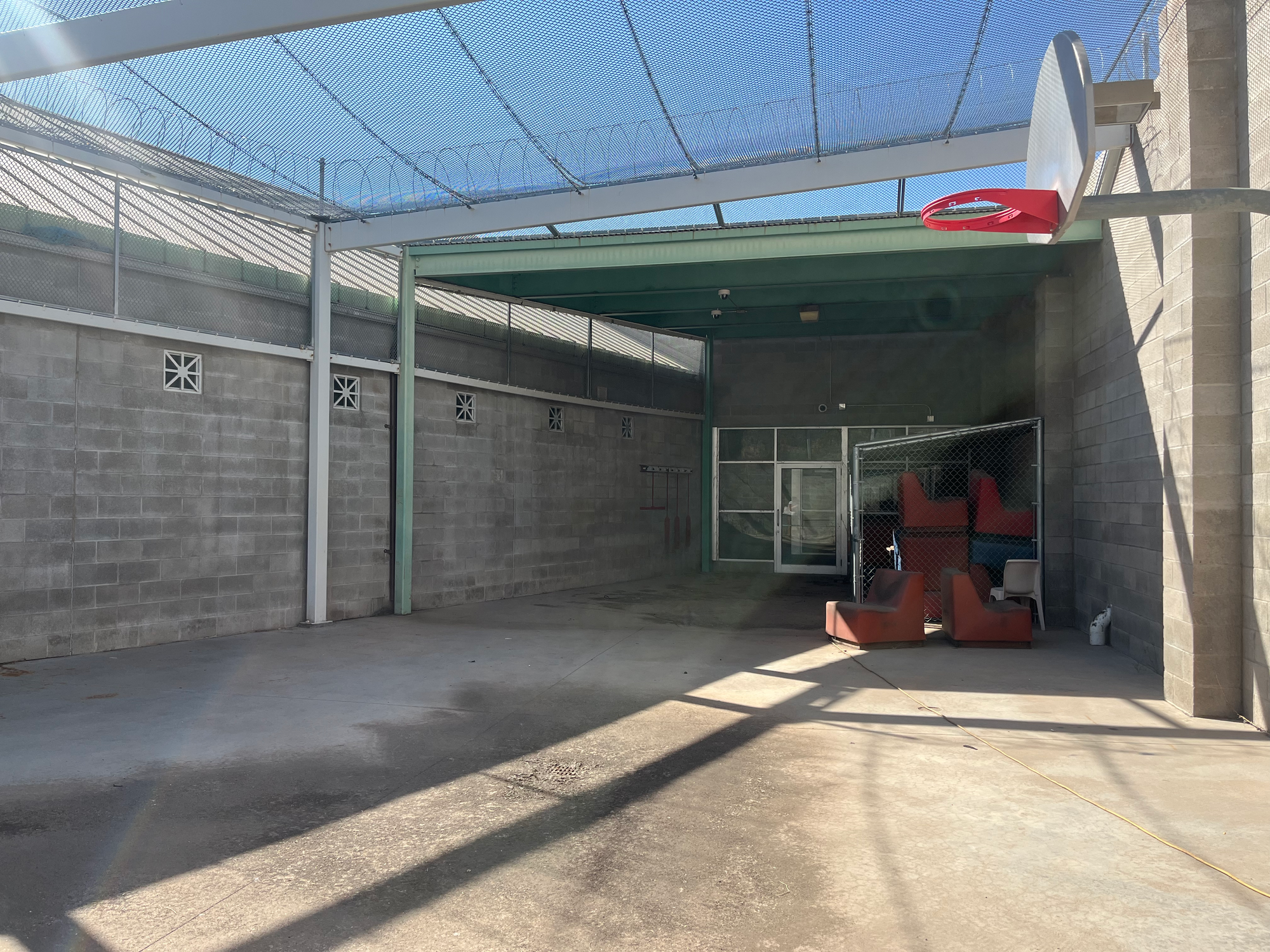
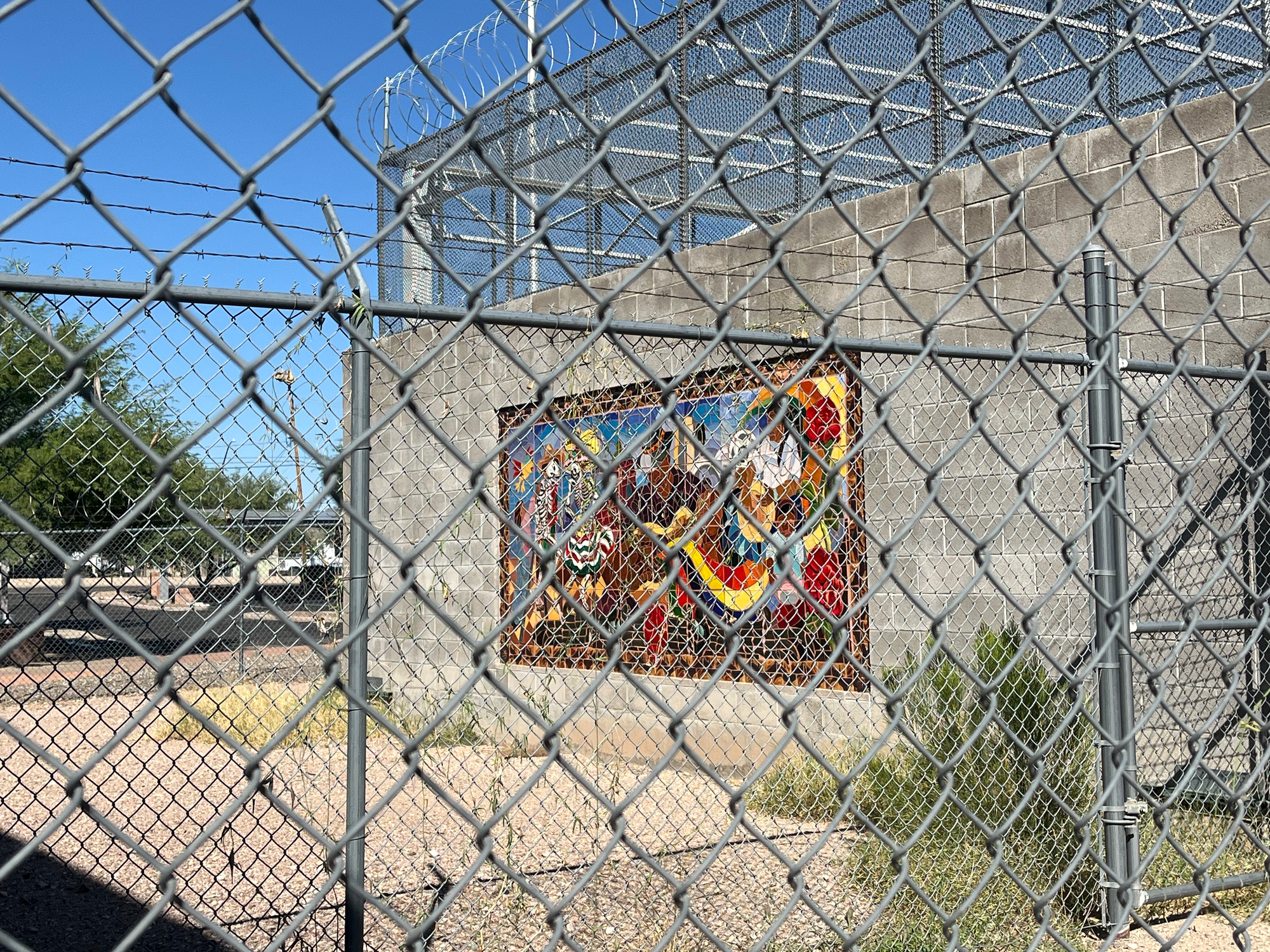
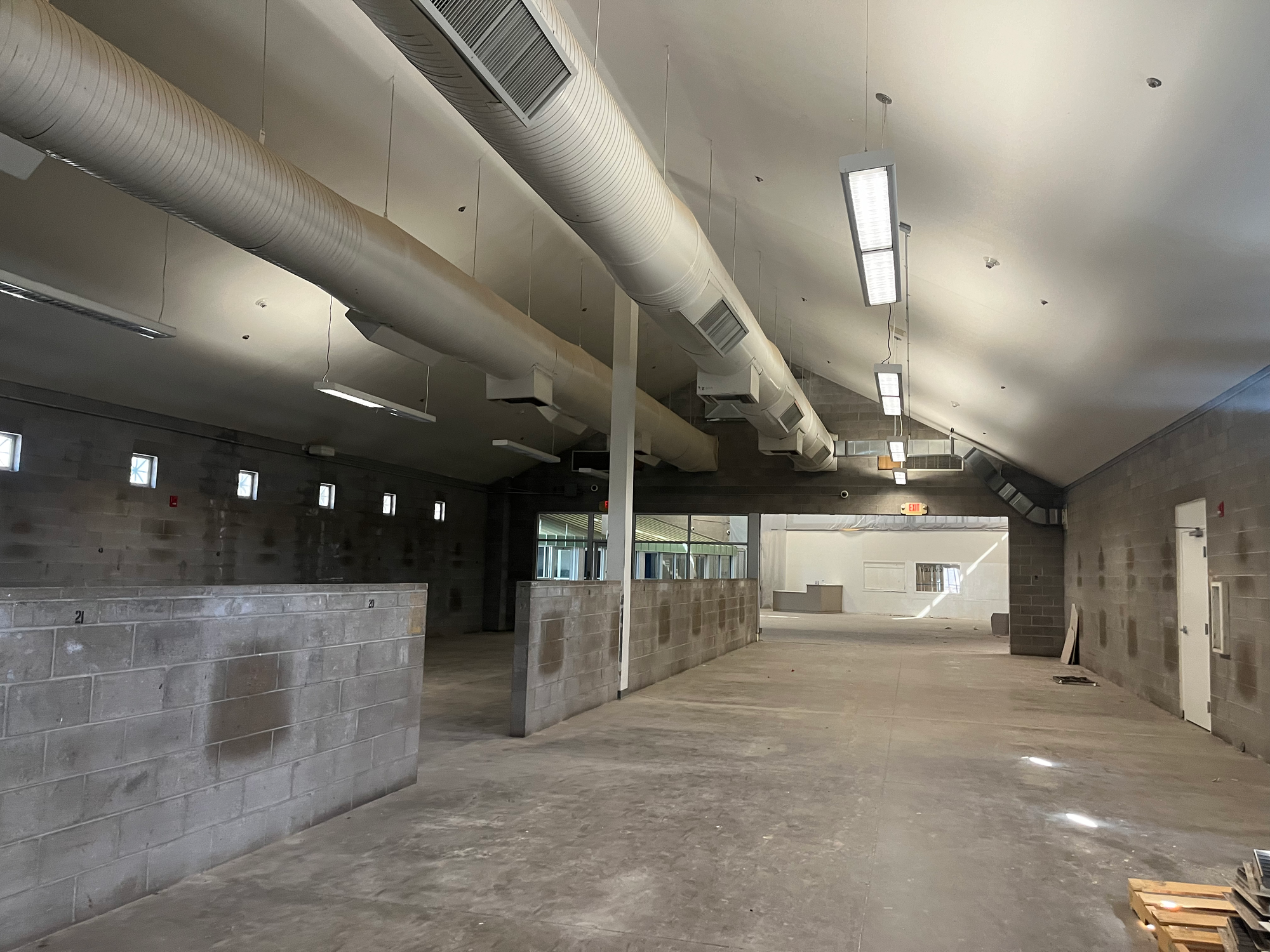
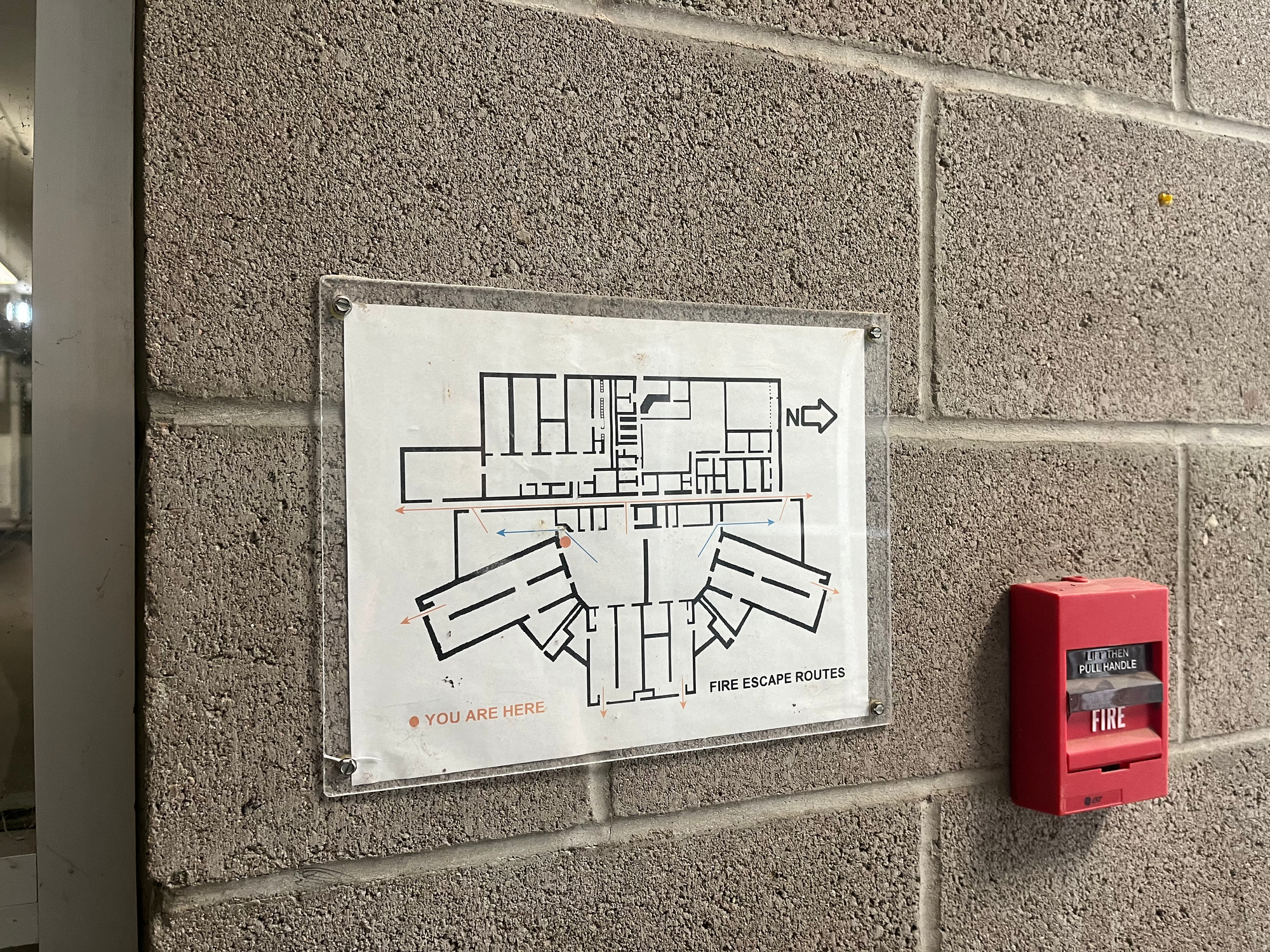
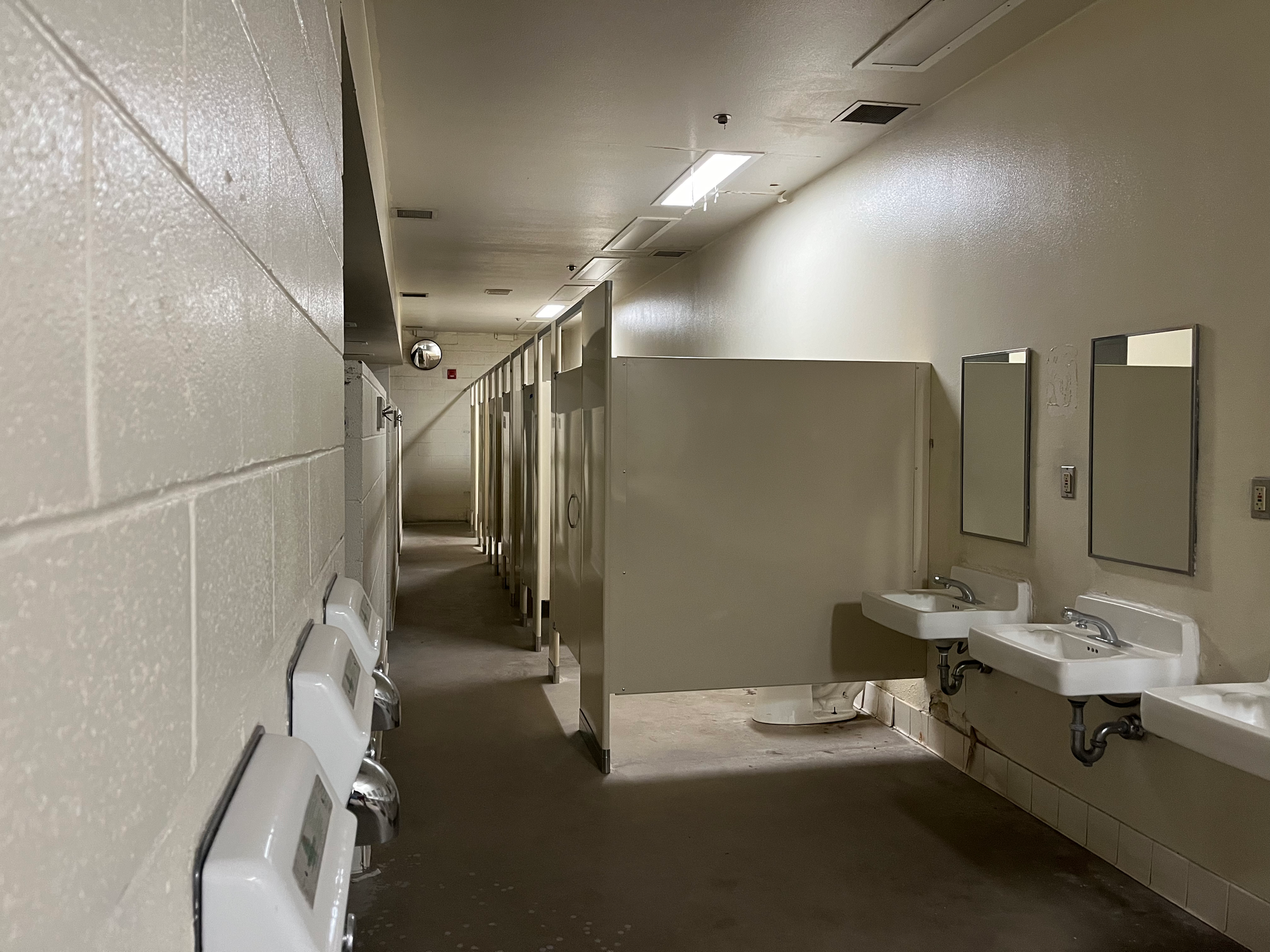
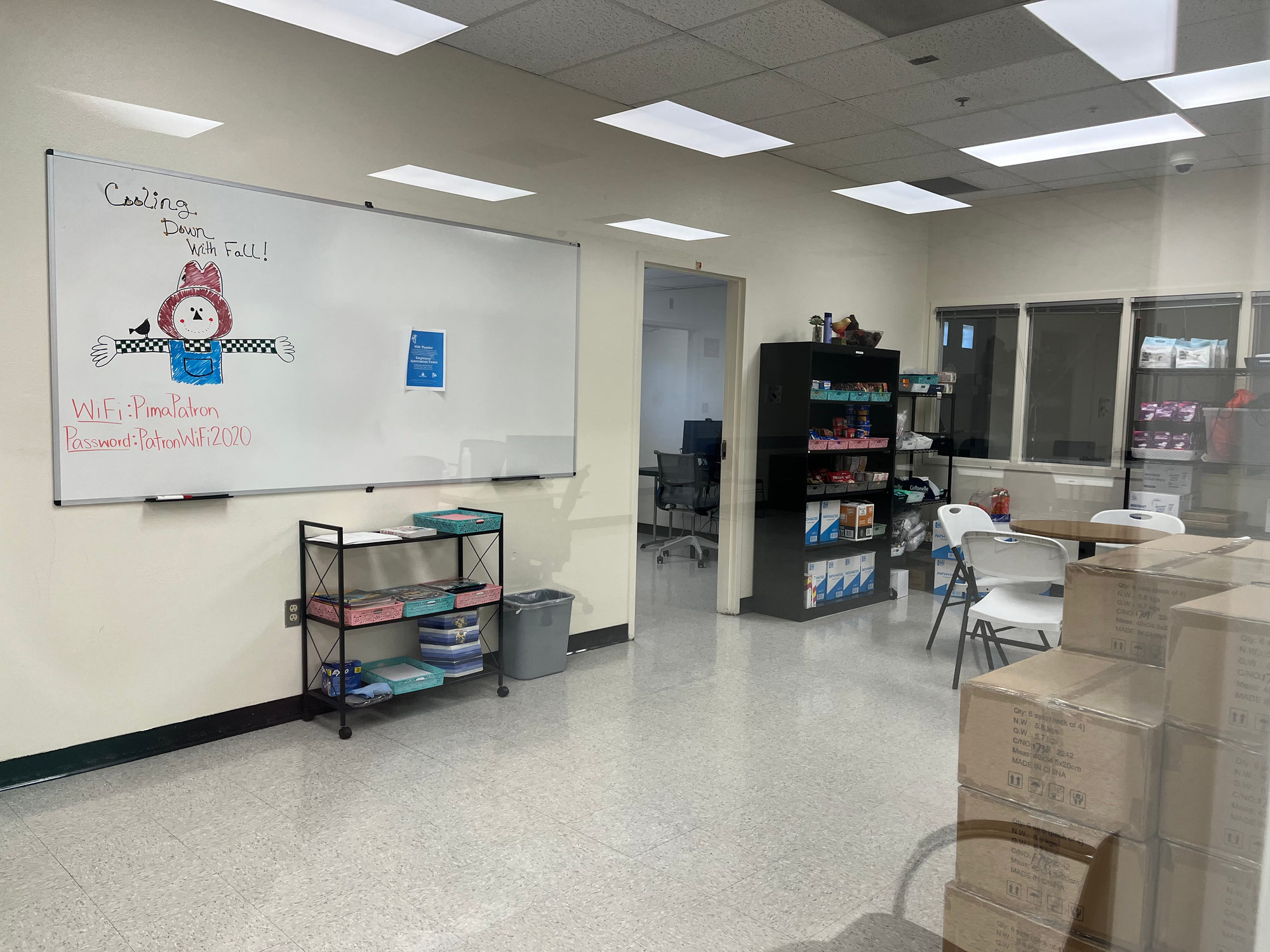
Mission Annex includes several secure, outdoor areas, dozens of toilets and showers and space suitable for communal or semi-private housing. The lobby is currently being used as a cooling center, with office space set up nearby for county and city employees and representatives from various social service agencies. Caitlin Schmidt / Tucson Spotlight.
Caitlin Schmidt is Editor and Publisher of Tucson Spotlight. Contact her at caitlin@tucsonspotlight.org.



